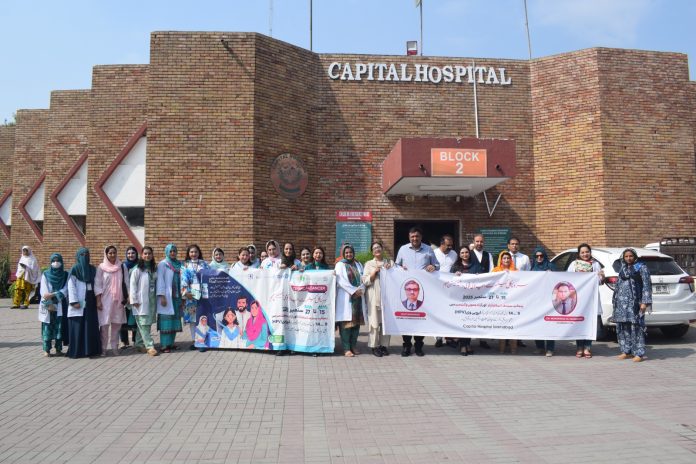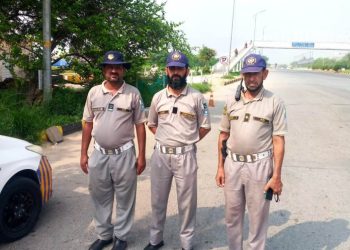Staff Reporter
ISLAMABAD:The Capital Hospital CDA’s Department of Gynaecology, in collaboration with the Federal Directorate of Immunization (FDI) and the World Health Organization (WHO), organized an extensive awareness symposium on cervical cancer and the upcoming Human Papillomavirus (HPV) vaccination campaign.
The event marked the beginning of a major national effort, as Pakistan prepares for the first-ever large-scale HPV vaccine drive from September 15 to 27, 2025, aimed at protecting girls between the ages of 9 and 14.
At the gathering, experts and health officials shed light on the rising threat of cervical cancer and the critical importance of preventive measures. Globally, cervical cancer is the third most common cancer among women, with an estimated 660,000 new cases and 350,000 deaths every year. Alarmingly, most of these deaths occur in low- and middle-income countries where awareness, timely screening, and vaccination remain limited. Pakistan mirrors this trend, recording around 5,000 new cases annually and facing the highest cervical cancer mortality rate in South Asia.Speakers at the symposium noted that the majority of these deaths could be prevented through early screening and vaccination programs, but a lack of awareness, myths surrounding the vaccine, and weak healthcare infrastructure have made the fight against the disease more challenging.Dr. Naeem Taj, Executive Director of CDA Hospital, urged families and communities to take preventive health seriously. He referred to WHO’s 90-70-70 strategy, which envisions eliminating cervical cancer by ensuring 90% of girls are vaccinated with the HPV vaccine, 70% of women are screened by the age of 35 and again by 45, and 70% of those with the disease receive proper treatment. “Pakistan cannot afford to lag behind on this,” he emphasized.Dr. Sheeba Noreen, Head of Gynecology at Capital Hospital, highlighted the need to dispel myths surrounding HPV vaccination. She explained that misinformation often links the vaccine with stigma, preventing families from allowing their daughters to benefit from it. “The HPV vaccine saves lives. It is not just a medical intervention but an investment in the health and future of young girls,” she said.Adding to this, Dr. Sofia Younas, Director General of FDI, said the campaign was a collective effort involving government institutions, international organizations, and communities. She underlined that prevention is far more cost-effective than treatment and pointed out that Pakistan’s growing population demands urgent preventive strategies.“If we fail to act now, the burden of disease will continue to rise, threatening families and straining the health system,” she warned.From the gynecology team, Dr. Urooj Yasir Khan shared WHO data showing how underreporting remains a significant challenge. She noted that Pakistan currently lacks a national cancer registry, which makes it difficult to understand the full scale of the problem.“Without accurate data, we cannot make informed policies. Alongside vaccination, we must improve record-keeping and monitoring,” she said.


















